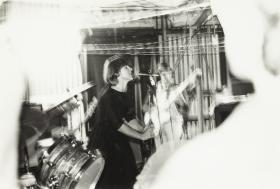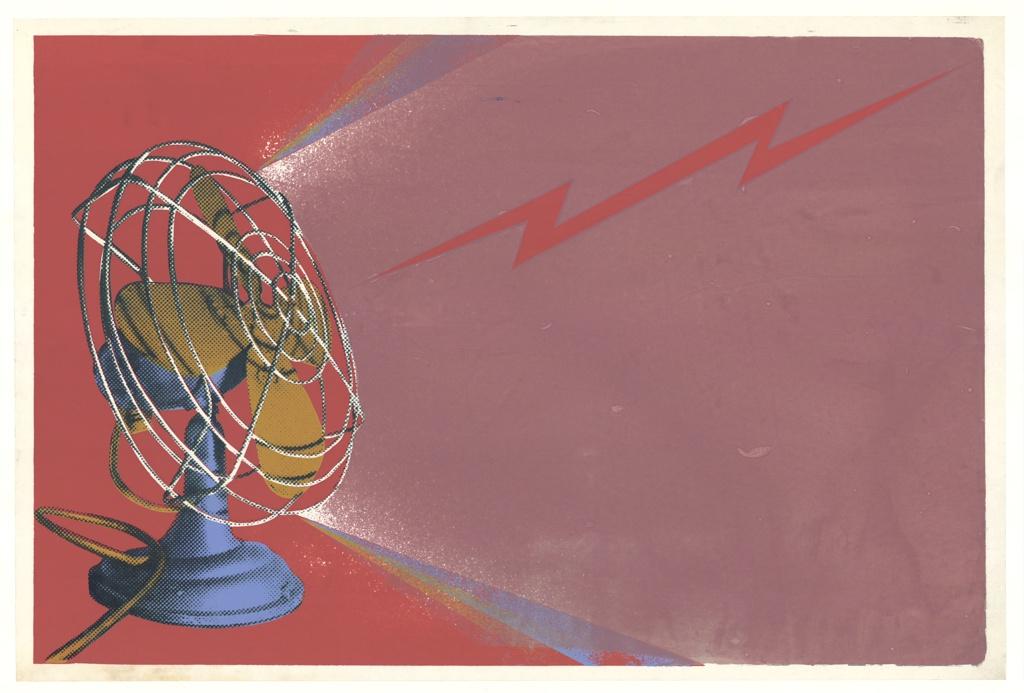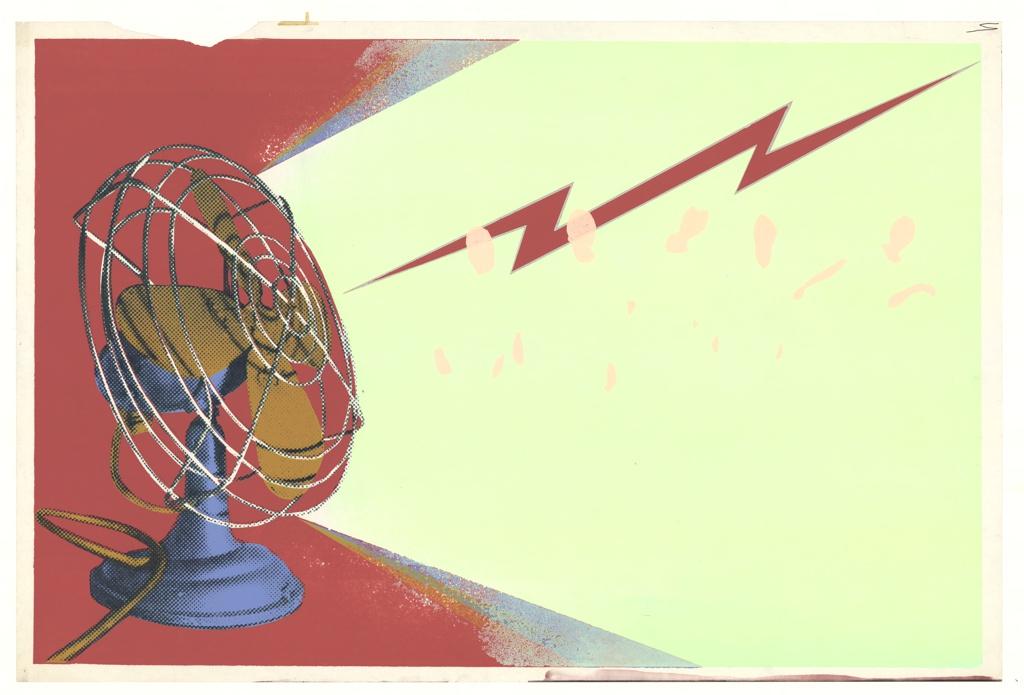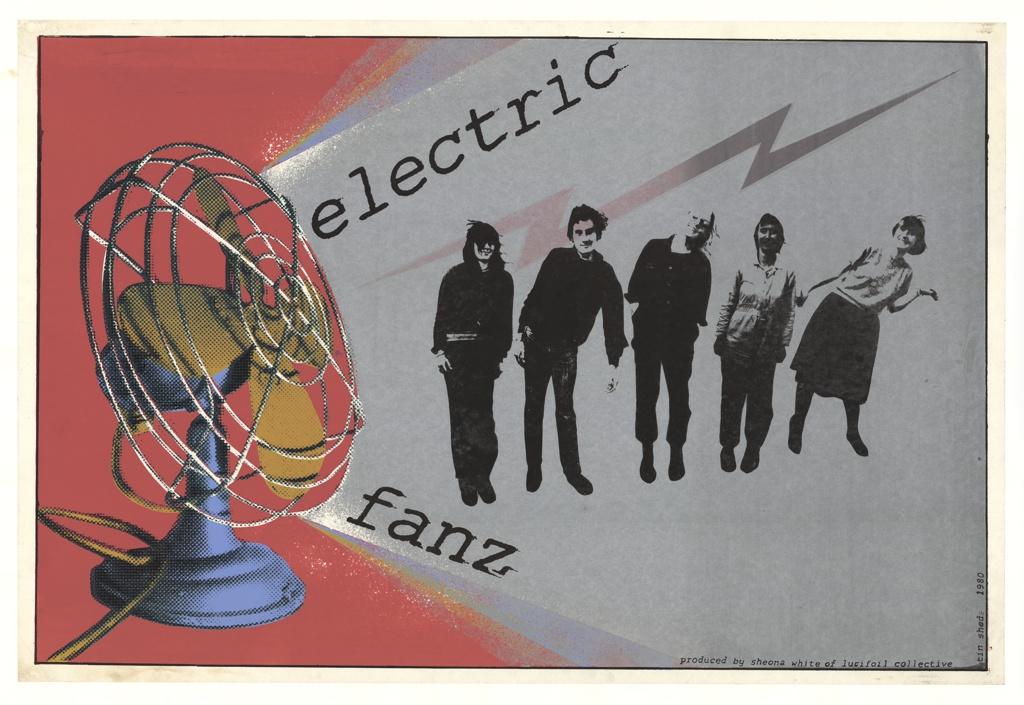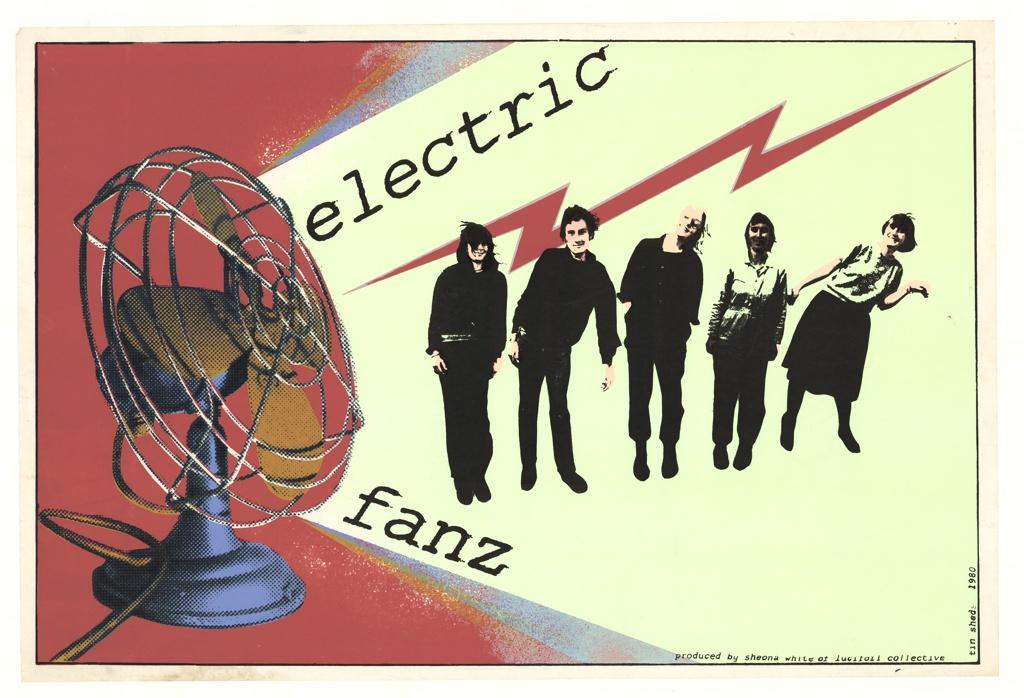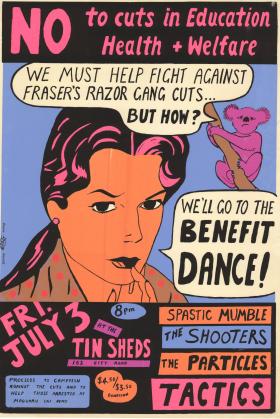The International Women’s Day march in Hyde Park on 10 March 1980 saw Sydney feminist band the Electric Fans pull their biggest crowd ever.
The politically motivated band had come together in mid-1978, combining members of the all-female punk group Alias and other friends. They played their first gig at The Settlement in Redfern, before landing a residency at the Native Rose Hotel in Chippendale (now the Rose Hotel), and often appeared at protest rallies and political fundraisers.
One of the main ways the band reached its audience was with posters like the one shown here, which promoted the band’s independently funded, first (and only) EP. According to sociologist, writer and Electric Fans drummer Professor Vivien Johnson, the band would never have had enough money for a recording session if one of their biggest fans hadn’t paid the $140 fee. After that, they put aside money from gigs for mixing sessions and to get the records cut at the EMI studio. Later, when they ran out of official photo covers for the record, they cut up the left-over posters to make extra covers.
This poster was created by Sheona White, then a member of the Lucifoil Poster Collective based at the Sydney University Art Workshop. Known as the Tin Sheds, the workshop was established in the late 1960s, and housed the Earthworks Poster Collective from 1972 to 1979. By 1980 the largely female group of printers working there had evolved into the Lucifoil Poster Collective, named by combining the name of the resident cat, Luci, with a reference to the metal-clad building they worked in.
A recent purchase has enabled the Library to strengthen its collection of 1980s Sydney poster art with a series of production proofs for the Electric Fans poster, documenting the screen-printing process used at the Tin Sheds. Reflecting the ‘do-it-yourself’ punk sensibilities of the time, the poster’s design was a collaborative process between Sheona and the band. Sheona found and photographed the industrial-looking fan and turned the ‘s’ into a ‘z’ in the band’s name to give the design a bit more edge. She recalls that 10 screens were used in the original printing set-up. It was the band members themselves who plastered the posters on walls and hoardings and outside gigs all over Sydney’s inner west.
The Electric Fans proofs are part of a display of posters created by Sydney artists and activists in the 1960s, ‘70s and ‘80s. Community arts activism surfaced during these decades to spotlight the social concerns of the times: the Vietnam War, the women’s movement, gay and lesbian rights, Aboriginal land rights and the environment. With its equipment easily and inexpensively manufactured, screen-printing was a means of direct expression that helped to politicise a generation.
Professor Johnson describes the music style of the Electric Fans as ‘a punk sound with social commentary, with even a bit of art history thrown in’. The band finally called it a day midway through 1981. By then, as Johnson recalls, ‘we had babies crawling around the band room while we tried to practise — it was mayhem’.
Margot Riley
Curator, Research and Discovery
Electric Fans band members were Brooke Daniels (bass), Kaye Greenleaf (guitar), Rick Hawkins (guitar), Vivien Johnson (drums), Roberta Johnston (guitar) and Moira McLain-Cross (vocals). Sheona White is now Director, Penrith Regional Gallery & Lewers Bequest.

